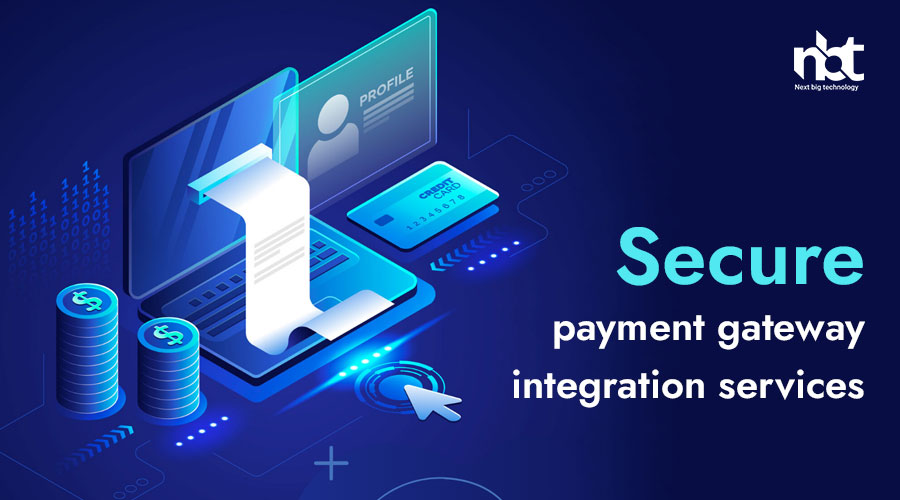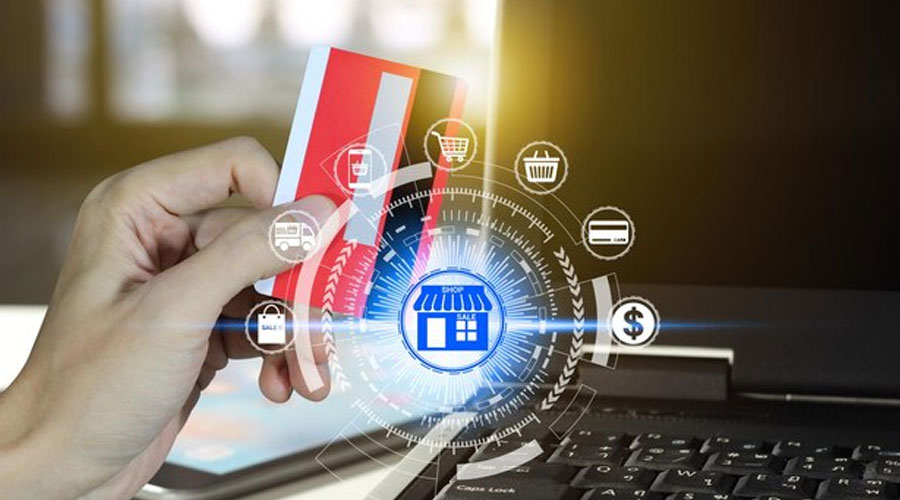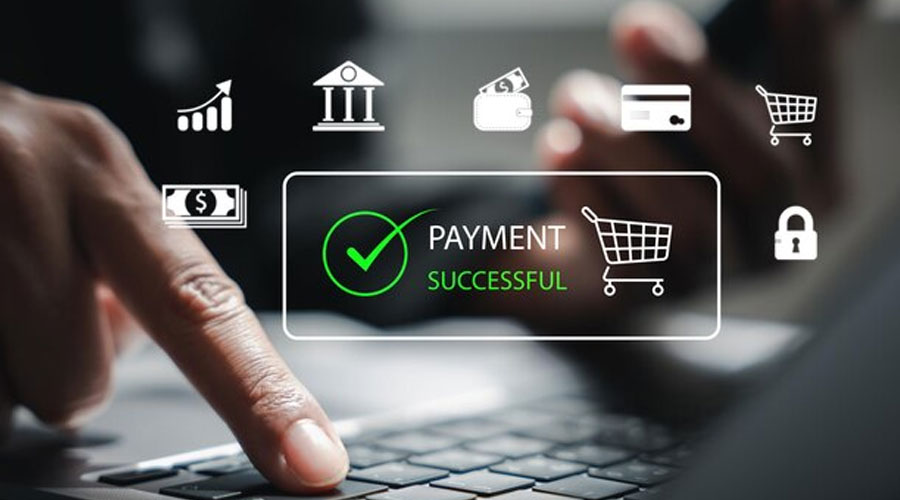Table of Contents
Secure payment gateway integration Services
In today’s rapidly evolving digital landscape, e-commerce has become the cornerstone of retail, enabling businesses to reach global markets and customers to shop conveniently from the comfort of their homes. However, amidst this convenience lies a critical concern: security. With cyber threats on the rise, ensuring secure payment transactions is paramount for both merchants and consumers alike. This is where secure payment gateway integration services step in to safeguard sensitive financial information and foster trust in online transactions.
Understanding Secure Payment Gateway Integration Services
Secure payment gateway integration services encompass the implementation of robust encryption protocols and authentication mechanisms to protect payment data during online transactions. These services facilitate seamless communication between the merchant’s website, the customer’s browser, and the payment processor, ensuring that sensitive information such as credit card details remains encrypted and secure throughout the transaction process.
The Significance of Secure Payment Gateway Integration
- Protection Against Cyber Threats: Cybercriminals are constantly devising sophisticated methods to infiltrate e-commerce platforms and steal valuable financial information. Secure payment gateway integration services serve as a barrier against such threats by encrypting data and implementing stringent security protocols, thereby minimizing the risk of data breaches and fraudulent activities.
- Enhanced Customer Trust: In an era where data breaches and online fraud are prevalent, consumers prioritize security when making online purchases. By incorporating secure payment gateway integration services, merchants demonstrate their commitment to protecting customer data, thereby instilling confidence and trust among potential buyers.
- Compliance with Regulatory Standards: With the implementation of stringent data protection regulations such as the General Data Protection Regulation (GDPR) and the Payment Card Industry Data Security Standard (PCI DSS), merchants are obligated to ensure the security and privacy of customer information. Secure payment gateway integration services help businesses comply with these regulations by adhering to industry-standard security practices and protocols.
- Streamlined Checkout Experience: While security is paramount, it should not come at the expense of user experience. Secure payment gateway integration services are designed to offer a seamless checkout process, minimizing friction and ensuring a hassle-free payment experience for customers. This, in turn, can lead to higher conversion rates and improved customer satisfaction.
Choosing the Right Payment Gateway Integration Service Provider
When selecting a provider for secure payment gateway integration services, merchants should consider the following factors:
- Security Features: Ensure that the service provider offers robust encryption methods, tokenization, and fraud detection mechanisms to safeguard against cyber threats.
- Compatibility: Verify compatibility with your e-commerce platform and ensure seamless integration with your existing systems.
- Scalability: Choose a solution that can scale with your business growth and accommodate increasing transaction volumes.
- Customer Support: Opt for a provider that offers reliable customer support and assistance in case of any technical issues or concerns.
How to Create a Secure payment gateway integration services
In the ever-evolving digital landscape, online transactions have become an integral part of our daily lives. Ensuring the security of these transactions is paramount, making the creation of a secure payment gateway integration service crucial for businesses. In this guide, we will delve into the key steps and best practices to develop a robust and secure payment gateway integration.
- Understanding the Basics: Before diving into the technicalities, it’s essential to have a clear understanding of what a payment gateway is. A payment gateway is a technology that facilitates the transfer of sensitive information between a website and a payment processor. It acts as a bridge, ensuring seamless and secure transactions.
- Choosing the Right Payment Gateway: Selecting a reliable payment gateway provider is the first step towards building a secure integration service. Look for providers with a proven track record in security and compliance. Features like end-to-end encryption, tokenization, and PCI DSS compliance are crucial for safeguarding sensitive customer data.
- Implementing SSL/TLS Encryption: Security starts with the communication between the user’s browser and your server. Implementing Secure Socket Layer (SSL) or Transport Layer Security (TLS) encryption ensures that the data transmitted during the payment process is encrypted, making it significantly more challenging for malicious actors to intercept or manipulate.
- Tokenization for Enhanced Security: Tokenization replaces sensitive data with unique tokens, minimizing the risk of data exposure. By implementing tokenization, businesses can ensure that even if a security breach occurs, the compromised data remains useless to potential attackers.
- Two-Factor Authentication (2FA): Integrating two-factor authentication adds an extra layer of security to the payment process. This could involve sending a one-time password (OTP) to the user’s registered mobile number or email, ensuring that only authorized users can complete transactions.
- Regular Security Audits: Conducting regular security audits is crucial for identifying and addressing vulnerabilities in your payment gateway integration. Engage in penetration testing and code reviews to proactively identify and mitigate potential security threats.
- Compliance with Payment Card Industry Data Security Standard (PCI DSS): Adhering to PCI DSS is a non-negotiable aspect of building a secure payment gateway integration service. Compliance ensures that your system meets the highest standards of security and reduces the risk of data breaches.
- Monitoring and Incident Response: Implement robust monitoring tools to keep a close eye on transactions and user activities. In case of any suspicious activities, having a well-defined incident response plan can help minimize the impact and swiftly address security incidents.
- User Education: Educating users on safe online practices can significantly contribute to the overall security of your payment gateway. Encourage them to use strong, unique passwords and to be cautious about phishing attempts.
- Regular Updates and Patch Management: Keeping your system up-to-date with the latest security patches is imperative. Regularly update all software components involved in the payment gateway integration to stay ahead of potential vulnerabilities.
Why Should You Go for Secure payment gateway integration services
In today’s digital age, where online transactions have become the norm, ensuring the security of payment processes is paramount for any business. With the increasing prevalence of cyber threats and the rising concerns over data breaches, implementing secure payment gateway integration services has become more crucial than ever before. In this article, we delve into the reasons why opting for secure payment gateway integration services is essential for the success and credibility of your business.
- Protecting Sensitive Data: One of the primary reasons to invest in secure payment gateway integration services is to safeguard sensitive customer information, such as credit card details, personal identifiers, and transaction data. By encrypting this data during transmission, a secure payment gateway ensures that it remains confidential and inaccessible to unauthorized entities, thus reducing the risk of fraud and identity theft.
- Building Trust and Credibility: When customers entrust their financial information to your business, they expect a secure and reliable payment process. By integrating a secure payment gateway, you demonstrate your commitment to protecting their data, thereby enhancing trust and credibility. Customers are more likely to complete transactions and return for future purchases if they feel confident in the security measures implemented by your business.
- Compliance with Regulations: In an increasingly regulated environment, businesses are required to adhere to various data protection laws and industry standards, such as the Payment Card Industry Data Security Standard (PCI DSS). Secure payment gateway integration services ensure compliance with these regulations by implementing necessary security protocols and measures, thereby mitigating the risk of non-compliance penalties and legal consequences.
- Reducing Chargeback Risks: Chargebacks can occur due to various reasons, including fraud, disputes, or processing errors, and can have significant financial implications for businesses. Secure payment gateway integration services include features such as fraud detection mechanisms and authentication protocols, which help minimize the occurrence of chargebacks and dispute resolution efforts, ultimately saving time and resources for your business.
- Enhancing User Experience: A seamless and secure payment process contributes to a positive user experience for your customers. With features such as one-click payments, tokenization, and multi-channel support, secure payment gateway integration services streamline the checkout process, reducing friction and increasing conversion rates. A smooth payment experience not only delights customers but also encourages repeat business and referrals.
- Adapting to Evolving Threats: Cyber threats are constantly evolving, requiring businesses to stay vigilant and proactive in safeguarding their payment systems. Secure payment gateway integration services employ advanced security technologies, such as tokenization, encryption, and real-time monitoring, to adapt to emerging threats and protect against potential vulnerabilities, ensuring the long-term security of your payment ecosystem.
Market Prospects of Custom Secure payment gateway integration services
In today’s rapidly evolving digital landscape, secure payment gateway integration services have become paramount for businesses aiming to thrive in the realm of e-commerce. With the increasing number of online transactions, ensuring a seamless and secure payment process has become a top priority for merchants. As a result, the market prospects for custom secure payment gateway integration services are witnessing significant growth and promise.
Custom secure payment gateway integration services offer tailored solutions to businesses of all sizes, catering to their specific requirements and ensuring the highest level of security for online transactions. These services encompass a range of features including encryption, tokenization, fraud detection, and compliance with industry standards such as PCI DSS (Payment Card Industry Data Security Standard). By integrating these advanced security measures, businesses can instill trust and confidence among their customers, leading to higher conversion rates and improved customer retention.
One of the key factors driving the demand for custom secure payment gateway integration services is the escalating threat of cyber-attacks and data breaches. With cybercriminals becoming increasingly sophisticated in their tactics, businesses cannot afford to overlook the importance of robust security measures. Custom payment gateway integration allows businesses to implement multi-layered security protocols, thereby safeguarding sensitive customer data and mitigating the risk of financial losses and reputational damage.
Moreover, the proliferation of mobile commerce (m-commerce) has further fueled the demand for secure payment gateway integration services. With more consumers opting to make purchases via their smartphones and tablets, businesses need to ensure seamless and secure payment experiences across all devices. Custom integration services enable businesses to adapt to the evolving landscape of m-commerce, offering responsive payment solutions that enhance user experience and drive sales.
Furthermore, the global shift towards cashless transactions and the rise of alternative payment methods such as digital wallets and cryptocurrency have created new opportunities for custom secure payment gateway integration services. Businesses are increasingly looking to support a diverse range of payment options to cater to the preferences of their customers. Custom integration services enable seamless integration with multiple payment gateways and support for various currencies, thereby expanding market reach and facilitating international transactions.
In addition to enhancing security and expanding payment options, custom secure payment gateway integration services also offer businesses greater flexibility and scalability. Whether it’s integrating with existing e-commerce platforms or developing bespoke payment solutions from scratch, custom integration services empower businesses to adapt to changing market dynamics and scale their operations efficiently.
As businesses continue to prioritize security, user experience, and flexibility in their e-commerce operations, the market prospects for custom secure payment gateway integration services are poised for steady growth. By partnering with experienced service providers and investing in customized solutions, businesses can stay ahead of the curve and capitalize on the lucrative opportunities presented by the evolving landscape of digital commerce.
Essential Features of a Secure payment gateway integration services
In today’s digital age, where online transactions reign supreme, having a secure payment gateway is non-negotiable for businesses. Whether you’re running an e-commerce platform, a subscription-based service, or processing donations for a non-profit organization, the integration of a secure payment gateway is crucial to safeguarding sensitive financial information and fostering trust among your customers.
Here are some essential features that every secure payment gateway integration service should offer:
- Encryption and Tokenization: The cornerstone of any secure payment gateway is robust encryption and tokenization techniques. Encryption ensures that sensitive data such as credit card numbers and personal information is transformed into an unreadable format during transmission, making it virtually impossible for hackers to intercept and decipher. Tokenization replaces sensitive data with unique tokens, further enhancing security by ensuring that actual card details are never stored on your servers.
- PCI DSS Compliance: Payment Card Industry Data Security Standard (PCI DSS) compliance is a must-have for any payment gateway service. PCI DSS sets forth strict security standards for handling credit card information, including requirements for encryption, access control, and regular security assessments. Choosing a payment gateway provider that is PCI DSS compliant helps mitigate the risk of data breaches and demonstrates a commitment to safeguarding customer data.
- Fraud Prevention Tools: As online payment fraud continues to evolve, having robust fraud prevention tools is essential. Look for payment gateway providers that offer features such as real-time fraud monitoring, address verification, and card verification code (CVC) checks. Additionally, machine learning algorithms can analyze transaction patterns to detect and prevent fraudulent activity before it impacts your business.
- Multi-Currency Support: For businesses operating on a global scale, supporting multiple currencies is essential for attracting customers from around the world. A secure payment gateway should seamlessly process transactions in various currencies, allowing customers to pay in their preferred currency without encountering conversion fees or discrepancies.
- Seamless Integration: Integration should be seamless and straightforward, whether you’re incorporating the payment gateway into an existing website or mobile app. Look for providers that offer easy-to-use APIs, SDKs, and plugins for popular e-commerce platforms such as Shopify, WooCommerce, and Magento. A well-documented integration process saves time and resources, enabling you to start accepting payments quickly and efficiently.
- Responsive Customer Support: In the event of technical issues or concerns, responsive customer support can make all the difference. Choose a payment gateway provider that offers round-the-clock support via multiple channels, including phone, email, and live chat. Prompt assistance ensures that any issues are addressed promptly, minimizing downtime and ensuring a smooth payment experience for your customers.
- Scalability and Reliability: As your business grows, your payment gateway should be able to scale seamlessly to accommodate increased transaction volumes. Look for providers with a reliable infrastructure and high uptime guarantees to minimize disruptions to your payment processing operations. Additionally, consider the scalability of pricing plans to ensure that your payment gateway remains cost-effective as your business expands.
Advanced Features of a Secure payment gateway integration services
In today’s digital age, secure payment gateway integration services have become indispensable for businesses looking to thrive in the online marketplace. These services not only facilitate seamless transactions but also ensure the security of sensitive financial information. As technology continues to advance, so do the features offered by payment gateway integration services. Let’s delve into some of the advanced features that businesses can leverage to enhance their online payment processes.
- Tokenization: One of the most advanced features of secure payment gateway integration is tokenization. This process involves replacing sensitive cardholder data with unique identification symbols, or tokens. By doing so, businesses can significantly reduce the risk of data breaches since sensitive information is never stored on their servers. Tokenization adds an extra layer of security to transactions, giving customers peace of mind when making purchases online.
- Fraud Detection and Prevention: Modern payment gateway integration services employ sophisticated algorithms and machine learning techniques to detect and prevent fraudulent activities in real-time. These systems analyze various transaction parameters, such as location, device, and spending patterns, to identify potentially fraudulent transactions. By flagging suspicious activities and blocking fraudulent transactions, businesses can minimize financial losses and maintain the trust of their customers.
- 3D Secure Authentication: Another advanced feature offered by secure payment gateway integration services is 3D Secure authentication. This protocol adds an extra layer of security to online transactions by requiring customers to authenticate themselves using a one-time password or biometric authentication method. 3D Secure authentication helps verify the identity of the cardholder, reducing the risk of unauthorized transactions and chargebacks.
- Dynamic Currency Conversion: For businesses operating in multiple countries, dynamic currency conversion is a valuable feature offered by payment gateway integration services. This feature allows customers to make purchases in their local currency, eliminating the need for manual currency conversions. By offering transparent and competitive exchange rates, businesses can enhance the shopping experience for international customers and increase conversion rates.
- Recurring Billing: Secure payment gateway integration services often include support for recurring billing, which is essential for businesses with subscription-based models or ongoing service agreements. This feature allows businesses to automatically bill customers at regular intervals, such as monthly or annually, without requiring manual intervention. Recurring billing streamlines the payment process for both businesses and customers, ensuring timely payments and improved cash flow.
- Customizable Checkout Experience: Many payment gateway integration services offer customizable checkout experiences, allowing businesses to tailor the payment process to their brand and customer preferences. From branded payment pages to seamless integration with existing websites and mobile apps, businesses can create a cohesive and user-friendly checkout experience that enhances customer satisfaction and loyalty.
- Comprehensive Reporting and Analytics: Advanced payment gateway integration services provide businesses with access to comprehensive reporting and analytics tools. These tools allow businesses to track key metrics, such as transaction volume, revenue, and customer demographics, in real-time. By gaining insights into customer behavior and payment trends, businesses can make informed decisions to optimize their payment processes and drive growth.
Secure payment gateway integration services Timelines
In today’s digital age, where online transactions have become the norm, ensuring the security of payment gateways is paramount for businesses. Integrating secure payment gateways not only facilitates smooth transactions but also builds trust among customers. However, one crucial aspect that often concerns businesses is the timeline involved in implementing these services. Let’s delve into understanding the timelines associated with secure payment gateway integration services and how businesses can navigate them effectively.
Understanding Secure Payment Gateway Integration:
Before delving into timelines, it’s essential to grasp the process of integrating secure payment gateways. Secure payment gateway integration involves connecting a merchant’s website or application to a payment processing network, enabling seamless and secure transactions. This integration typically requires collaboration between the business, the payment gateway provider, and often the expertise of developers or integration specialists.
Factors Influencing Timelines:
- Business Requirements: The complexity of your business requirements plays a significant role in determining the integration timeline. Factors such as the number of payment methods you want to support, customization needs, and compliance requirements can impact the overall duration.
- Choice of Payment Gateway Provider: Different payment gateway providers offer varying levels of integration support and resources. Choosing a provider with robust integration tools and responsive support can expedite the integration process.
- Technical Complexity: The complexity of your existing systems and infrastructure can affect integration timelines. Legacy systems may require additional time for compatibility checks and customization to ensure seamless integration.
- Compliance and Security Standards: Adhering to industry regulations and security standards, such as PCI DSS compliance, is non-negotiable. Ensuring that your payment gateway integration meets these standards may add to the timeline but is crucial for safeguarding sensitive customer data.
- Testing and Quality Assurance: Thorough testing is vital to identify and address any potential issues or vulnerabilities in the payment gateway integration. Allocating sufficient time for testing and quality assurance helps prevent disruptions and ensures a smooth user experience.
Typical Timelines:
While timelines can vary depending on the factors mentioned above, a typical secure payment gateway integration process may follow these general stages:
- Planning and Preparation (1-2 weeks): This stage involves defining your business requirements, selecting a suitable payment gateway provider, and outlining the integration strategy.
- Development and Integration (2-4 weeks): Developers work on integrating the chosen payment gateway into your website or application. This includes coding, API integration, and customization to align with your branding and user experience.
- Testing and Quality Assurance (1-2 weeks): Rigorous testing is conducted to ensure that the payment gateway functions as intended, with thorough checks for security, compatibility, and usability.
- Deployment and Go-Live (1 week): Once testing is complete and any issues are resolved, the integrated payment gateway is deployed to the production environment, and transactions go live.
- Monitoring and Optimization (Ongoing): Continuous monitoring of transaction data, performance metrics, and user feedback allows for ongoing optimization and refinement of the payment gateway integration.
Tips for Expedited Integration:
- Choose the Right Partner: Select a payment gateway provider with a track record of efficient integration support and reliable service.
- Streamline Requirements: Clearly define your business requirements upfront to streamline the integration process and minimize delays.
- Prioritize Security and Compliance: Allocate sufficient time and resources to ensure compliance with security standards and regulations from the outset.
- Effective Communication: Maintain open communication channels between your team, the payment gateway provider, and any third-party developers involved to address issues promptly and keep the integration on track.
How Much Does It Cost to Build a Secure payment gateway integration services?
In the dynamic realm of e-commerce, the implementation of secure payment gateways is paramount. As businesses strive to provide seamless and secure transactions for their customers, the question arises: How much does it cost to build a secure payment gateway integration service? Let’s delve into the intricacies of this essential component of online business operations.
- Type of Payment Gateway: The cost of building a secure payment gateway integration service largely depends on the type of gateway chosen. There are various options available, including hosted payment gateways, integrated payment gateways, and self-hosted payment gateways. Each comes with its own set of features, security measures, and associated costs.
- Customization and Integration Needs: Customization plays a significant role in determining the cost. Depending on the specific requirements of the business, customization might involve incorporating specific features, branding elements, or integrating with existing systems such as e-commerce platforms or accounting software. The level of integration required can significantly influence the overall cost.
- Security Protocols and Compliance: Ensuring robust security measures is non-negotiable when it comes to payment gateway integration. Compliance with industry standards such as PCI DSS (Payment Card Industry Data Security Standard) is imperative. Implementing advanced security protocols incurs additional costs, but it’s an investment in safeguarding sensitive financial data and maintaining customer trust.
- Development and Maintenance: The development phase includes coding, testing, and deployment of the payment gateway integration service. Skilled developers proficient in payment gateway APIs and protocols are essential for a smooth implementation process. Additionally, ongoing maintenance and updates are necessary to address security vulnerabilities, enhance functionality, and adapt to evolving industry standards.
- Transaction Volume and Fees: Some payment gateways charge a flat fee per transaction, while others operate on a percentage-based model. The transaction volume and frequency of transactions directly impact the overall cost. It’s crucial to evaluate the fee structure of different payment gateways and consider projected transaction volumes to determine the most cost-effective option.
- Customer Support and Service Level Agreements (SLAs): Reliable customer support is indispensable, especially in the event of technical issues or payment processing errors. Opting for payment gateway providers offering 24/7 support might entail higher costs but ensures prompt resolution of issues and uninterrupted service. Service level agreements outlining performance guarantees and uptime commitments should also be considered.
- Scale and Growth Potential: Anticipating future growth and scalability requirements is vital when estimating costs. Businesses should choose payment gateway solutions that can accommodate increasing transaction volumes and expansion into new markets without significant disruptions or costly upgrades.
- Regulatory Compliance and Legal Considerations: Adhering to regulatory requirements and navigating legal complexities is integral to the cost calculation. Depending on the industry and geographical location, there may be specific regulations governing online payment processing that businesses must comply with, potentially necessitating additional investment in legal counsel and compliance measures.
How to Create a Secure payment gateway integration services – Team and Tech Stack
In today’s digital landscape, where online transactions have become the norm, ensuring the security of payment gateways is paramount for businesses. A secure payment gateway integration service not only instills trust among customers but also protects sensitive financial information. To achieve this, businesses need to assemble the right team and employ a robust tech stack. Let’s delve into the essential components required to create a secure payment gateway integration service.
Team Composition:
- Project Manager: A skilled project manager acts as the orchestrator, overseeing the entire development process. They ensure effective communication among team members, manage timelines, and align the project with business objectives.
- Developers: Backend developers proficient in languages like Java, Python, or Node.js are indispensable for building the core functionality of the payment gateway. Frontend developers with expertise in HTML, CSS, and JavaScript are required for designing user interfaces that are intuitive and secure.
- Security Experts: Security specialists play a crucial role in identifying potential vulnerabilities and implementing measures to safeguard against cyber threats. Their expertise in encryption protocols, compliance standards (such as PCI DSS), and threat detection mechanisms is invaluable.
- Quality Assurance (QA) Team: QA professionals rigorously test the payment gateway to ensure its functionality, usability, and security. They perform various tests, including penetration testing and vulnerability assessments, to identify and rectify any flaws before deployment.
- Legal and Compliance Advisors: Legal experts provide guidance on regulatory compliance, ensuring that the payment gateway adheres to data protection laws and industry standards. They also draft user agreements and privacy policies to protect both the business and its customers.
Tech Stack:
- Programming Languages: Choose programming languages that offer robust security features and support for encryption protocols. Popular choices include Java, Python, Ruby, and Node.js for backend development, while HTML, CSS, and JavaScript are used for frontend development.
- Framework and Libraries: Utilize frameworks and libraries that facilitate secure development practices. For example, frameworks like Spring Boot (Java) and Django (Python) offer built-in security features, while libraries like OpenSSL provide encryption capabilities.
- Database Management Systems (DBMS): Select DBMS solutions that prioritize data security and integrity. MySQL, PostgreSQL, and MongoDB are commonly used for storing transaction data securely, with encryption and access control mechanisms in place.
- Payment Gateway APIs: Integrate with reputable payment gateway APIs such as PayPal, Stripe, or Square, which offer robust security features like tokenization and fraud detection. Ensure that communication between your application and the payment gateway is encrypted using HTTPS.
- Security Tools: Implement security tools such as firewalls, intrusion detection systems (IDS), and antivirus software to safeguard against cyber threats. Regularly update these tools to mitigate emerging security risks.
By assembling the right team and leveraging a robust tech stack, businesses can create a secure payment gateway integration service that instills confidence in customers and protects sensitive financial information. Prioritizing security throughout the development process is key to building trust and ensuring the long-term success of the payment gateway.
Next Big Technology – Your Trusted Secure payment gateway integration services Partner
In today’s fast-paced digital landscape, staying ahead of the curve is essential for any business looking to thrive. One area where innovation is rapidly transforming the way we conduct transactions is payment gateway integration services. As online transactions continue to dominate commerce, having a trusted and secure payment gateway integration partner is crucial for businesses of all sizes.
At the forefront of this technological revolution is the emergence of next-generation payment gateway integration services. These services go beyond traditional payment processing by offering advanced features such as seamless integration with various platforms, enhanced security protocols, and customizable solutions tailored to the unique needs of each business.
Why is choosing the right payment gateway integration partner so important? The answer lies in the fundamental role that payments play in the success of any business. A smooth and secure payment experience not only fosters trust and loyalty among customers but also streamlines internal operations and drives revenue growth.
When it comes to selecting a payment gateway integration partner, trust and security are paramount. Businesses need a partner they can rely on to safeguard sensitive financial information and ensure compliance with industry regulations. Moreover, with the rise of cybersecurity threats, robust security measures such as encryption, tokenization, and fraud detection are non-negotiable.
But security is just one piece of the puzzle. A truly effective payment gateway integration partner should also offer a seamless and user-friendly experience for both customers and merchants. This includes features such as quick and easy checkout processes, support for multiple payment methods, and real-time reporting and analytics to track transaction performance.
In addition to security and usability, businesses should also consider scalability and flexibility when choosing a payment gateway integration partner. As their needs evolve and grow, they need a partner who can scale with them and adapt to changing requirements without disruption.
The next big technology in payment gateway integration services promises to deliver on all fronts. By leveraging cutting-edge technologies such as artificial intelligence, machine learning, and blockchain, these services offer unprecedented levels of security, efficiency, and innovation.
For businesses looking to elevate their payment processes to the next level, partnering with a trusted and secure payment gateway integration service provider is essential. With the right partner by their side, businesses can unlock new opportunities for growth, enhance customer satisfaction, and stay ahead of the competition in today’s dynamic marketplace.
Secure payment gateway integration services Process
In the rapidly evolving landscape of e-commerce, one of the most critical components for any online business is a secure payment gateway. It’s the linchpin that ensures transactions are smooth, safe, and reliable for both merchants and customers. However, integrating a payment gateway into your website can be a complex process, requiring careful attention to detail and adherence to security standards. This article will guide you through the process of secure payment gateway integration services, outlining the steps involved and the benefits it can bring to your business.
- Understanding Your Needs: The first step in the process is to understand your business requirements. Different businesses have different needs when it comes to payment processing, such as the types of payments accepted, currencies supported, and compliance requirements. By understanding your specific needs, you can choose a payment gateway provider that best aligns with your business goals.
- Selecting the Right Payment Gateway Provider: Once you have a clear understanding of your requirements, it’s time to select a payment gateway provider. There are many providers available, each offering different features, pricing, and levels of security. It’s essential to do your research and choose a provider that offers robust security measures, seamless integration options, and excellent customer support.
- Integration Process: The integration process typically involves several steps, including setting up an account with the payment gateway provider, obtaining API keys or credentials, and integrating the payment gateway into your website or mobile app. Depending on your platform and technical expertise, you may choose to integrate the payment gateway yourself or hire a professional developer to assist you.
- Testing and Certification: Once the payment gateway is integrated into your website, thorough testing is essential to ensure that transactions are processed correctly and securely. This involves conducting both functional and security testing to identify and address any issues before going live. Additionally, depending on your industry, you may need to obtain certification to demonstrate compliance with relevant security standards, such as PCI DSS.
- Go Live and Monitor Performance: After successfully testing the payment gateway, you can go live and start accepting payments from your customers. However, the process doesn’t end there. It’s crucial to monitor the performance of your payment gateway regularly, keeping an eye on transaction success rates, processing times, and any potential security threats. By staying vigilant, you can ensure that your payment gateway continues to operate smoothly and securely.
Benefits of Secure Payment Gateway Integration Services:
- Enhanced Security: By integrating a secure payment gateway, you can protect sensitive customer data, such as credit card information, from unauthorized access and fraud.
- Improved Customer Trust: A secure payment gateway instills confidence in your customers, reassuring them that their transactions are safe and their data is protected.
- Streamlined Checkout Process: A seamless payment experience can help reduce cart abandonment rates and improve conversion rates, ultimately boosting your bottom line.
- Global Reach: Many payment gateway providers support multiple currencies and payment methods, allowing you to reach customers around the world and expand your business internationally.
Enterprise Secure payment gateway integration services
In today’s digital age, where online transactions have become the norm, securing payment gateways is paramount for enterprises. With cyber threats evolving constantly, businesses must prioritize robust security measures to protect sensitive customer data and ensure seamless transactions. This is where enterprise secure payment gateway integration services step in, offering a comprehensive solution to fortify payment gateways against potential breaches.
Understanding Secure Payment Gateway Integration Services
Secure payment gateway integration services involve the seamless incorporation of advanced security features into a business’s payment processing system. These services encompass a range of measures, including encryption protocols, tokenization, fraud detection mechanisms, and adherence to industry compliance standards such as PCI DSS (Payment Card Industry Data Security Standard).
The Importance of Enterprise-Level Security
For enterprises, the stakes are higher when it comes to payment security. A data breach not only jeopardizes customer trust but also poses significant financial and reputational risks. By leveraging enterprise secure payment gateway integration services, businesses can implement multi-layered security protocols tailored to their specific needs and industry requirements. This proactive approach not only safeguards against potential threats but also instills confidence in customers, enhancing brand reputation.
Key Features and Benefits
- Advanced Encryption: Enterprise secure payment gateway integration services utilize state-of-the-art encryption technologies to protect sensitive data during transmission. This ensures that payment information remains encrypted and secure, mitigating the risk of interception by cybercriminals.
- Tokenization: Through tokenization, sensitive payment data is replaced with unique tokens, minimizing the exposure of actual card information. This adds an extra layer of security and reduces the likelihood of data theft in the event of a breach.
- Fraud Detection and Prevention: These services incorporate robust fraud detection algorithms that analyze transaction patterns in real-time, flagging suspicious activities for further scrutiny. By proactively identifying and mitigating fraudulent transactions, businesses can minimize financial losses and maintain the integrity of their payment ecosystem.
- Compliance with Regulatory Standards: Enterprise secure payment gateway integration services ensure compliance with industry regulations such as PCI DSS, GDPR (General Data Protection Regulation), and HIPAA (Health Insurance Portability and Accountability Act), safeguarding businesses from potential legal ramifications associated with non-compliance.
- Customized Solutions: Every enterprise has unique security requirements based on its industry, transaction volume, and customer base. Secure payment gateway integration services offer customizable solutions tailored to the specific needs of each business, ensuring optimal protection without compromising operational efficiency.
Top Secure payment gateway integration services Companies
In today’s digital age, the importance of secure payment gateway integration services cannot be overstated. Whether you run an e-commerce store, a subscription-based platform, or any online business, having a reliable and secure payment gateway is crucial for smooth transactions and customer trust. With numerous options available, choosing the right payment gateway integration service can be daunting. To help you navigate through the plethora of choices, here are five top companies renowned for their secure payment gateway integration services.
-
-
Next Big Technology:
Next Big Technology is one of the top development companies for the high-quality development of mobile apps and web development services. They have having experienced in-house team of developers who provide top-notch development services according to the business requirements. NBT provides highly business-oriented services and implements all the latest and trending tools and technologies. They always work hard to deliver a top-notch solution at an affordable cost. They are having experience of more than 13 years and delivered lots of projects around the globe to businesses and clients.
NBT is highly focused on providing top-notch development solutions at a very affordable cost. By using their market experience and development experience, they are delivering proper solutions to clients and various industries for their custom requirements.
Location: India, USA, UK, Australia
Hourly Rate :< $25 per Hour
Employees: 50 – 249
Focus Area
- Mobile App Development
- App Designing (UI/UX)
- Software Development
- Web Development
- AR & VR Development
- Big Data & BI
- Cloud Computing Services
- DevOps
- E-commerce Development
Industries Focus
- Art, Entertainment & Music
- Business Services
- Consumer Products
- Designing
- Education
- Financial & Payments
- Gaming
- Government
- Healthcare & Medical
- Hospitality
- Information Technology
- Legal & Compliance
- Manufacturing
- Media
-
- PayPal: PayPal is synonymous with online payments, known for its widespread acceptance and reliability. Apart from its ubiquitous presence, PayPal offers easy integration options and strong encryption protocols to safeguard sensitive data. With features like PayPal Checkout and PayPal Payments Pro, businesses can customize their payment process while maintaining security standards compliant with PCI-DSS regulations.
- Authorize.Net: Trusted by thousands of merchants worldwide, Authorize.Net is renowned for its scalable payment solutions tailored to businesses of all sizes. Its comprehensive suite of services includes payment gateway integration, subscription billing, and fraud prevention tools. Authorize.Net prioritizes security through features like Advanced Fraud Detection Suite (AFDS) and tokenization, ensuring secure transactions while minimizing chargeback risks.
- Braintree: Acquired by PayPal, Braintree is a robust payment platform favored by businesses seeking flexible integration options and global payment support. Its developer-friendly APIs and SDKs enable seamless integration across various platforms, including web, mobile, and in-app payments. Braintree’s emphasis on security is evident through its encryption methods and compliance with PCI-DSS standards, instilling confidence in both merchants and customers.
- Square: Square revolutionized payment processing with its innovative solutions tailored for small businesses and entrepreneurs. Beyond its sleek card readers and point-of-sale systems, Square offers versatile payment gateway integration services for online transactions. With features like Square Online Checkout and Square APIs, businesses can securely accept payments while enjoying real-time analytics and fraud prevention measures.
FAQs on Secure payment gateway integration services
In today’s fast-paced digital age, integrating a secure payment gateway into your online business operations is paramount. It ensures smooth and secure transactions, building trust among customers and safeguarding sensitive information. However, navigating the realm of payment gateway integration can be daunting, especially for those new to the concept. To shed light on this crucial aspect, let’s delve into some frequently asked questions (FAQs) regarding secure payment gateway integration services:
- What is a payment gateway? A payment gateway is a technology that facilitates the transfer of payment information between a website and the acquiring bank. It encrypts sensitive data such as credit card numbers, ensuring secure transactions for online purchases.
- Why is secure payment gateway integration important? Secure payment gateway integration is vital as it protects both merchants and customers from potential fraud and data breaches. It ensures that financial transactions are conducted safely, instilling confidence and credibility in your online business.
- How does payment gateway integration work? Payment gateway integration works by securely transmitting payment data from the customer’s browser to the payment processor, which then communicates with the issuing bank to authorize the transaction. Once approved, the payment gateway sends a confirmation message to complete the purchase.
- What are the key features to look for in a secure payment gateway? When choosing a payment gateway, look for features such as robust encryption protocols, PCI compliance, seamless integration with your website or e-commerce platform, support for multiple payment methods, and reliable customer support.
- How can I ensure the security of transactions through the payment gateway? To enhance transaction security, opt for a payment gateway provider that offers advanced security measures such as tokenization, fraud detection tools, and 3D Secure authentication. Additionally, regularly update your website’s security protocols and adhere to PCI DSS standards.
- What are the costs associated with payment gateway integration? The costs of payment gateway integration vary depending on factors such as transaction volume, payment methods supported, and additional features required. Typically, merchants may incur setup fees, transaction fees, and monthly subscription fees.
- Can I customize the payment gateway to match my brand’s aesthetics? Many payment gateway providers offer customization options, allowing you to tailor the payment interface to align with your brand’s aesthetics. This includes adding your logo, customizing colors, and incorporating seamless checkout experiences for customers.
- Is it necessary to have technical expertise for payment gateway integration? While having technical expertise can be beneficial, most payment gateway providers offer user-friendly integration solutions and comprehensive documentation to streamline the process. Additionally, you can enlist the help of developers or third-party integration services if needed.
- What measures should I take to troubleshoot payment gateway issues? In the event of payment gateway issues, first, ensure that your website’s SSL certificate is up to date and that all integration settings are configured correctly. Reach out to your payment gateway provider’s support team for assistance and troubleshoot any errors promptly to minimize disruption to your business.
- How can I stay updated on the latest trends and developments in payment gateway integration? Stay informed by following industry publications, attending webinars, and participating in forums and communities dedicated to e-commerce and payment processing. Additionally, engage with your payment gateway provider for updates on new features and enhancements.
Thanks for reading our post “Secure payment gateway integration services”. Please connect with us to learn more about the Secure payment gateway integration.
























